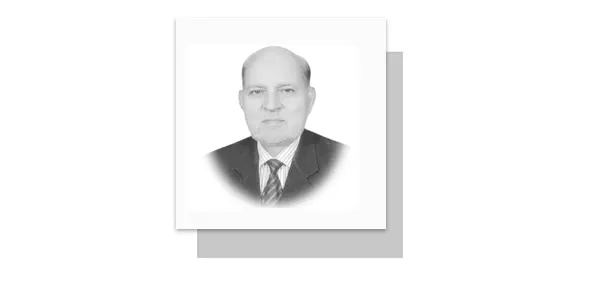14 August, commemorates the day when Pakistan achieved independence and was declared a sovereign state following the termination of the British Raj on 14 August, 1947. Pakistan came into existence on 14 August 1947, as a result of the Pakistan Movement, which aimed to the creation of an independent Muslim state in the northwestern regions of British India via partition. The movement was led by the All-India Muslim League under the brilliant leadership of Quaid-i-Azam Muhammad Ali Jinnah.
Hence, 14 August is celebrated every year as “Pakistan’s Independence Day” by the whole Pakistani nation with a lot of zeal, fervour and enthusiasm. Whereas ceremonies/festivities take place in all cities of Pakistan, the main Independence Day ceremony takes place in Islamabad, to thank Almighty and remember Quaid-i-Azam and his companions, for their painful efforts.
This year also (2023), 14 August has been celebrated as Pakistan’s Independence Day with a great fervour, enthusiasm and devotion. While the celebration of 14 August as Pakistan’s Independence Day” gives a lot of pride and pleasure to the Pakistani leaders and the Nation, the day also reminds them about the Quaid-i-Azam’s vision of Pakistan, and to what extent it has been implemented.
Now, let us see the main points of the Quaid’s vision of Pakistan. In a Broadcast talk on Pakistan on 26 February 1948, Mr Jinnah said, “I am sure that Pakistan’s constitution will be of a democratic type, embodying the essential principles of Islam. Islam taught the equality of men, justice and fair-play to everybody. Minorities in Pakistan will enjoy the same rights and privileges as any other citizens”.
During his Presidential Address to the Constituent Assembly of Pakistan, of 11 August 1947, Mr. Jinnah said, ”If we want to make this great State of Pakistan happy and prosperous we should wholly and solely concentrate on the well-being of the people and especially of the masses and the poor”.
“You must remember your motto; Unity, Faith and Discipline”. Education is a matter of life and death for our nation (Quaid-i-Azam’s Quotes). In a Public Address, at Dacca on 21 March 1948, Mr Jinnah said, “If you want to build up yourself into a nation, then, Give up this provincialism. Provincialism has been one of the curses; and so is sectionalism, Shia, Sunni, etc”.
“The biggest curses being inherited from India are corruption/bribery, nepotism and black marketing. These are a poison. We must put down these with an iron hand. (Presidential address to the Constituent Assembly, 11 August 1947). In a Talk with Journalists of Kashmir, on 23 May 1944, the Quid said, “The Press (now Media) is great power and it can do good as well as harm. If rightly conducted, it can guide and instruct public opinion”.
“The spirit of the defence forces is splendid, the morale is very high, and what is very encouraging is that every officer and soldier, no matter what the race or community to which he belongs, is working, as true Pakistani. If you all continue in that spirit and work as the comrades, as true Pakistanis selflessly, Pakistan has nothing to fear”.(Quaid’s Address at the Army Staff College, Quetta).
Now a few lines about our successes and failures in implementing Quaid’s vision of Pakistan. Whereas Pakistan’s armed forces are well knit/trained and equipped to defend the country, and the scientists, supported by the strong leadership of the time, have worked well to make Pakistan a nuclear weapon state, and Pakistan’s diplomacy has been pragmatic in defending Pakistan’s interests, Pakistan’s political performance, the economy, education and the civil department’s efficiency have been badly weakened by our civil leadership. However, building the road infrastructure and the CPEC project/power plants/airports have been a success story.
Regarding achieving the prosperity and looking after the poor masses, while Pakistan has been almost economic Asian tiger in the 1960s in Ayub’s era, since then our economy has been on the down slide, and now it is studded with heavy foreign loans and at the mercy of the IMF and friendly countries to return the loan instalments. And, with the current rocket high prices, poor masses are crying for two times food.
On unity, faith and discipline, and shunning the provincialism, sectarianism, and greed for power, Pakistan has suffered very badly due to ignoring Quaid’s advice on these matters, as East Pakistan was lost and our smaller provinces and poor masses are still in bad shape with the multiplying separatist tendencies and terrorism. At times sectarianism also creates law and order situation.
Instead of working efficiently, honestly and free of any political affiliation, many of our civil servants are nurturing political affiliations and the politicians in power befriend them through illegal incentives and keep exploiting them to their advantage. Our police/lower judiciary are hardly able to provide justice to the people, as the poor peoples’ cases keep lingering on for years.
In education sector also Pakistan is lagging behind, as there is poor standard in the government’s education schools and colleges, due to rampant corruption/inefficiency, except some private schools and colleges, where education is good but unaffordable by the poor.
—The writer is also a former Research Fellow of IPRI and Senior Research Fellow of SVI Islamabad.
Email: hanifsardar@hotmail.com










